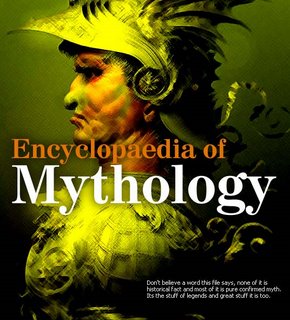
MYTHOLOGY
The body of myths belonging to a culture. Myths are traditional stories about gods and heroes. They often account for the basic aspects of existence — explaining, for instance, how the Earth was created, why people have to die, or why the year is divided into seasons. Classical mythology— the myths of the ancient Greeks and Romans — has had an enormous influence on European and American culture.
Work Cited: "mythology." Roget's II: The New Thesaurus, Third Edition. Houghton Mifflin Company, 1995. Answers.com 20 Dec. 2006. http://www.answers.com/topic/celtic-mythology
Mythology is the entire body of myths in a given tradition, and the study of myths. Students of anthropology, folklore, and religion study myths in different ways, distinguishing them from various other forms of popular, often orally transmitted, literature. Much of that literature is classified according to its presumed function: fables, which instruct; etiological tales, which explain; and folktales, which entertain.
Work Cited:"mythology." The Columbia Electronic Encyclopedia, Sixth Edition. Columbia University Press., 2003. Answers.com 20 Dec. 2006. http://www.answers.com/topic/celtic-mythology
A body or collection of myths belonging to a people and addressing their origin, history, deities, ancestors, and heroes.
The systematic collection and study of myths.
Work Cited:"mythology." The American Heritage® Dictionary of the English Language, Fourth Edition. Houghton Mifflin Company, 2004. Answers.com 20 Dec. 2006. http://www.answers.com/topic/celtic-mythology


0 Comments:
Post a Comment
<< Home